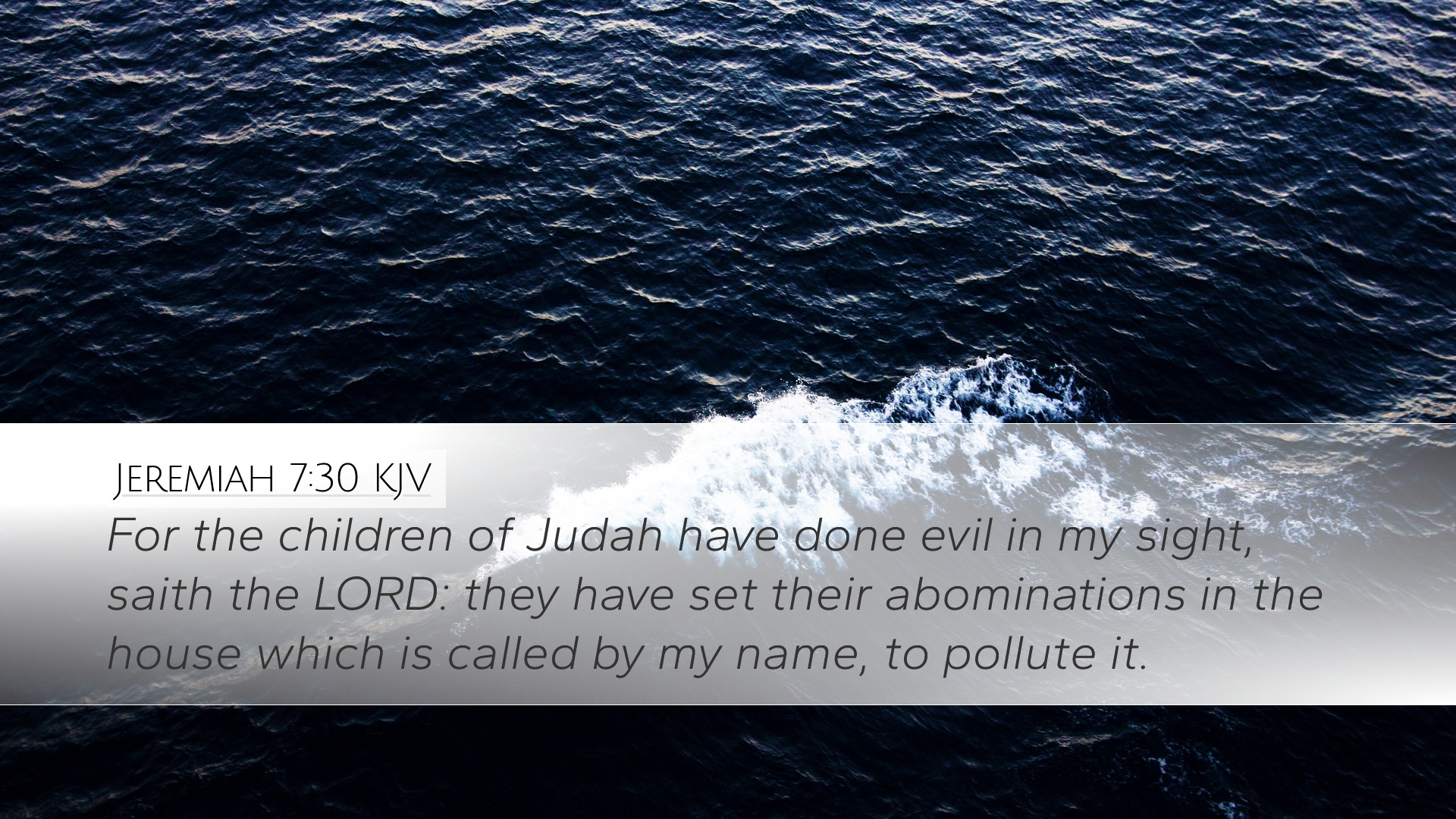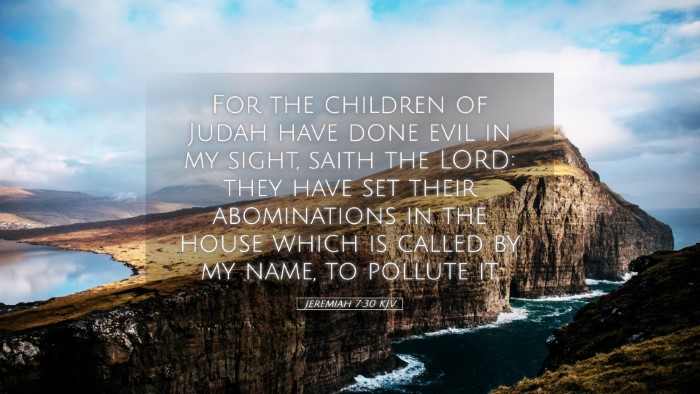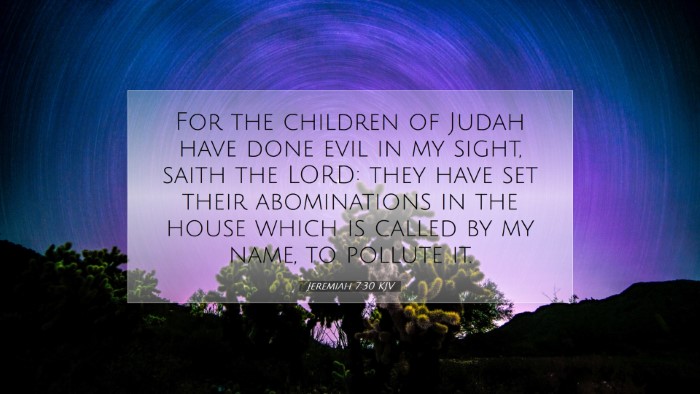Commentary on Jeremiah 7:30
Verse: "For the children of Judah have done evil in my sight, saith the Lord: they have set their abominations in the house which is called by my name, to pollute it."
Introduction
Jeremiah 7:30 serves as a poignant reminder of the seriousness of idolatry and moral decay within the covenant community. It is a call to repentance and a vivid portrayal of the consequences of straying from God's commandments. The context of this verse is essential: it emerges from a broader discourse wherein God, through the prophet Jeremiah, chastises the people of Judah for their unfaithfulness.
Contextual Background
In Jeremiah's time, Jerusalem and its temple were seen as inviolable symbols of God's presence. Yet, the people’s actions contradicted their profession of faith. This verse highlights the stark contrast between the people’s outward religion and inward corruption. The abominations mentioned are not merely personal sins but a collective turning away from the covenant relationship with God.
Matthew Henry's Insights
Matthew Henry emphasizes the gravity of the people's transgressions, noting that the house of God, intended to be a sanctuary, had been turned into a place of idolatry. He writes:
"God could not but be provoked by the wickedness of the children of Judah, who, notwithstanding the solemn profession they made of godliness, polluted His house with their abominations."
Henry further elaborates that such actions bring about divine judgment and that God's patience should not be mistaken for approval of sin. The defilement of the temple signifies a deep spiritual corruption that threatens the nation.
Albert Barnes’ Commentary
Albert Barnes provides additional depth by noting that the term "abominations" refers to practices that were outright contrary to God’s law, specifically idolatry and the worship of false gods. Barnes states:
"The sin was all the greater because it was committed by those who had the knowledge of the true God and yet wilfully turned their backs on Him."
He further discusses the implications of such defilement, asserting that the very essence of worship was corrupted. He urges contemporary readers to reflect on their own spiritual practices and to ensure that their places of worship do not harbor similar iniquities.
Adam Clarke’s Perspective
Adam Clarke brings a historical perspective to this verse, illustrating how the behaviors of Judah's children had not only social implications but also deep spiritual ramifications. He notes:
"The people had sunk into their idolatrous practices, believing they could still engage in worshipping the God of Israel in the presence of these defilements."
Clarke suggests that such hypocrisy was prevalent throughout Judah and serves as a warning to the modern church against complacency in faith. He stresses that true worship must be accompanied by purity of heart and life.
Theological Implications
The ramifications of Jeremiah 7:30 are profoundly theological. The verse paints a picture of the covenant relationship, illustrating that sin disrupts communion with God. The imagery of pollution and defilement serves as a stark reminder that God desires holiness from His people. Both Henry and Barnes underscore the necessity of aligning one’s practices with divine expectations; this is not merely about external compliance, but an internal transformation.
Practical Applications
- Reflection: Pastors and spiritual leaders should encourage their congregations to reflect on personal and communal practices that may be defiling their worship.
- Repentance: This verse serves as a call to action for believers to repent from any habitual sins or idolatry that may be present in their lives.
- Restoration: The church must actively seek to restore purity in worship and ensure that its message aligns with God’s truth.
Conclusion
Jeremiah 7:30 encapsulates a critical message for every generation. The Lord's observation of His people's sins is a solemn reminder of His holiness and the need for His followers to reflect that holiness in their lives. By drawing from the rich commentaries of Matthew Henry, Albert Barnes, and Adam Clarke, readers can glean profound insights into the nature of sin, the significance of true worship, and the essential call to live lives that honor God amidst a culture of compromise.


